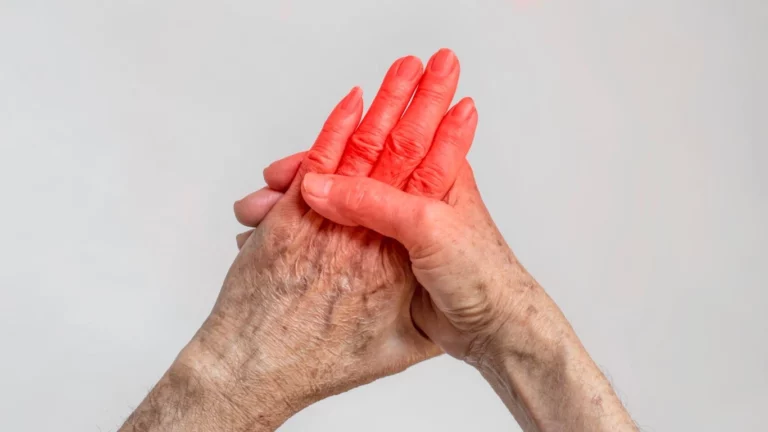10 Powerful GERD-Friendly Hydration Tips to Soothe Your Digestive System
If you’ve been diagnosed with GERD (Gastroesophageal Reflux Disease), you probably already know how important it is to manage your diet and lifestyle. One often overlooked aspect of GERD management is hydration. While it’s easy to grab a sugary soda or an overly caffeinated drink, these can actually make GERD symptoms worse. In fact, staying hydrated with the right beverages is crucial for keeping your symptoms in check and maintaining your overall health. Let’s dive into some GERD-friendly hydration tips that can make a big difference in how you feel daily.
Understanding the Role of Hydration in GERD Management

As someone who’s worked as a Medical Assistant in a Gastroenterology Clinic, I’ve seen firsthand how many people struggle with finding a balance between what to drink and what to avoid. The thing is, hydration isn’t just about quenching thirst – it plays a big part in managing GERD. When you’re well-hydrated, your body can produce enough saliva to help wash down stomach acid that might escape into your esophagus. This can provide some relief for GERD sufferers and make the digestive process smoother.
Another important point is that the *right* fluids can soothe the digestive system and even help in healing the esophagus lining, which may be irritated by frequent acid reflux. But here’s where it gets tricky—certain drinks, like citrus juices, caffeinated beverages, and carbonated sodas, can make GERD symptoms worse. So, finding alternatives that support your body without aggravating reflux is key.
Top GERD-Friendly Hydration Tips
1. Stick to Water – The Most GERD-Friendly Drink

Let’s start with the basics. Water is your best friend when it comes to GERD. It’s neutral, hydrating, and doesn’t trigger acid reflux. In fact, drinking water can help wash down any acid that might have crept up into your esophagus. But, and this is an important note: make sure you’re drinking water at a moderate pace. Chugging water all at once can cause discomfort, especially if your stomach is already sensitive. A few sips at a time is usually the way to go.
Sometimes, plain water might get a little boring. You can easily jazz it up with some natural flavors. A couple of slices of cucumber, a wedge of melon, or a sprig of mint can add a refreshing twist without triggering any reflux. I’ve seen some of my patients find relief simply by having their water infused with flavors that aren’t too acidic or spicy.
2. Herbal Teas – Your Soothing, GERD-Friendly Option

If you’re a tea lover, you’re in luck. Herbal teas are a fantastic way to stay hydrated and can provide additional soothing benefits for those with GERD. Popular options like *chamomile*, *ginger*, and *licorice* tea are known to be gentle on the stomach and can help reduce inflammation in the esophagus. Chamomile, in particular, is often recommended for its calming effects, which can help reduce stress—a common GERD trigger.
That said, not all teas are created equal. You’ll want to avoid teas that are caffeinated, such as traditional black and green teas, as they can irritate your esophagus and promote acid reflux. Stick to decaffeinated, herbal varieties to reap the benefits without the unwanted side effects.
3. Coconut Water – A Hydrating, Alkaline Option
Coconut water is another great option for GERD sufferers. It’s naturally alkaline, meaning it can help balance out your stomach’s acidity, which is often the root cause of reflux. Plus, it’s packed with electrolytes, which can keep you hydrated throughout the day. In my experience, many patients have shared that coconut water doesn’t cause the discomfort that many other beverages might.
However, it’s important to note that not all coconut waters are created equally. Look for varieties that are *pure* and free from added sugars and artificial flavors. These can spike your blood sugar and cause acid reflux to worsen, so always check the label before you buy.
What to Avoid When Hydrating with GERD
While we’re on the topic of hydration, it’s just as important to know what to avoid. You might be surprised by some of these offenders, but trust me, I’ve seen patients who didn’t realize how much certain drinks could affect them.
- Caffeinated beverages: Coffee, tea, and sodas that contain caffeine are common triggers for GERD. Caffeine relaxes the lower esophageal sphincter, allowing stomach acid to move up into the esophagus more easily.
- Carbonated drinks: Soda and sparkling water can cause bloating and put extra pressure on the stomach, which can exacerbate reflux symptoms.
- Acidic beverages: Orange juice, lemon water, and other citrus-based drinks can irritate the esophagus lining and cause acid reflux flare-ups.
- Alcohol: Alcohol, especially wine and beer, can relax the esophageal sphincter and increase the likelihood of reflux.
Keeping your hydration regimen GERD-friendly is a balancing act, but with a little trial and error, you’ll find the drinks that work best for you. And remember, staying hydrated isn’t just about avoiding discomfort—it also supports your overall health, energy levels, and well-being.
Incorporating Hydration Into Your Daily Routine

Now that we’ve covered some GERD-friendly drink options, let’s talk about how to actually incorporate these hydration habits into your daily routine. It’s easy to overlook hydration when you’re juggling the demands of work, home life, and everything in between, but it’s essential to make it a priority—especially when dealing with GERD.
One tip that I often share with patients in the gastroenterology clinic is to start your day with a glass of water. It may seem simple, but this can help get your digestive system moving and ensure you’re already on track for the day. Personally, I’ve found that drinking water first thing in the morning, before any caffeine or food, sets a solid foundation for the rest of the day. It’s almost like a small reset for the body, helping to rehydrate after hours of sleep.
Hydration Timings Matter
Another thing I’ve learned from my experience with GERD patients is that when you drink is just as important as what you drink. Drinking too much liquid during meals can cause bloating and pressure on the stomach, which may trigger acid reflux. Instead, try to limit your intake of fluids during meals. If you’re thirsty, it’s best to drink water 30 minutes before or after eating, rather than gulping down an entire glass while you’re eating.
Spacing out your hydration throughout the day can also help maintain consistent levels of hydration without overwhelming your digestive system. I recommend sipping water every 30-60 minutes. This steady intake keeps your body hydrated while preventing the discomfort that can come with drinking too much at once.
Recipes for GERD-Friendly Hydration
If you’re looking to mix things up and avoid the monotony of plain water, here are some easy, GERD-friendly hydration recipes that I’ve personally suggested to many patients. They’re simple to make, taste great, and won’t upset your stomach.
1. Soothing Ginger Lemon Water

Ginger is one of the best natural remedies for nausea and digestive issues. When combined with lemon, it not only adds a refreshing twist but also has mild alkalizing effects. Here’s how to make a soothing ginger lemon water:
- Peel a small piece of fresh ginger root (about 1-2 inches).
- Slice it thinly and place it in a cup or glass.
- Add hot (not boiling) water to the cup.
- Squeeze in a little fresh lemon juice, but don’t overdo it! Just a small wedge will suffice.
- Let it steep for a few minutes, and sip slowly. You can add a dash of honey for sweetness if needed.
This ginger lemon water is not only soothing but also great for digestion, making it perfect for GERD sufferers. The ginger calms inflammation, while the lemon’s alkaline properties help neutralize stomach acid.
2. Cooling Cucumber Mint Infused Water
If you’re craving something ultra-refreshing, cucumber mint infused water is the way to go. Both cucumber and mint are known for their cooling properties, which can help calm inflammation in the digestive tract. Here’s how to make it:
- Slice half of a cucumber into thin rounds.
- Add the slices to a pitcher or large glass.
- Take a handful of fresh mint leaves and gently crush them to release their oils.
- Add the mint leaves to the pitcher along with the cucumber.
- Fill the pitcher with cold water and refrigerate for a couple of hours before serving.
This infusion is light, hydrating, and full of antioxidants. It’s perfect for sipping throughout the day and can be a great alternative to sugary drinks.
3. Aloe Vera Water
Aloe vera is known for its soothing and healing properties. It’s been used for centuries to calm digestive discomfort, and it can work wonders for GERD sufferers. Aloe vera water is incredibly easy to make, and it can be a great addition to your hydration routine.
- Purchase pure aloe vera juice from a health food store or, if you have access to an aloe plant, you can extract fresh aloe juice yourself.
- Mix 1-2 tablespoons of aloe vera juice with a glass of water.
- Stir well and sip slowly. If you find the taste a bit bitter, you can add a bit of honey to sweeten it.
Remember, less is more when it comes to aloe vera. Too much can be harsh on the digestive system, so keep your portions small, especially if you’re new to drinking aloe vera water. It’s a great way to help calm your stomach and maintain hydration levels.
Staying Consistent: A Key to GERD Management
One thing that I’ve seen repeatedly in the clinic is that consistency is crucial when managing GERD. Whether it’s hydration, diet, or lifestyle changes, sticking to a routine makes a huge difference in how you feel. You may not see results overnight, but over time, you’ll begin to notice that your symptoms become more manageable and your overall quality of life improves.
For me, I always encourage patients to keep track of what works for them. Everyone’s body reacts differently, and what might be soothing for one person could trigger reflux in another. Keep a hydration journal or log to track what you’re drinking and how you feel afterward. This can help you make better decisions moving forward and avoid any potential triggers that may affect your GERD.
As with any part of GERD management, what works for you might take a little trial and error. But don’t get discouraged! Finding your ideal hydration routine is worth the effort. You deserve to feel your best every day, and with the right approach to hydration, you’ll be well on your way to achieving that goal.
Understanding the Impact of Lifestyle Factors on GERD

When managing GERD, it’s not just about what you drink or eat – your overall lifestyle plays a huge role in how well your body handles acid reflux. As someone who’s spent a lot of time working with GERD patients in a clinical setting, I can tell you that small changes in lifestyle can make a significant difference in how much you suffer from this condition. Let’s dive into some important lifestyle factors to keep in mind when dealing with GERD.
1. Stress Management and GERD
One of the most underestimated aspects of GERD management is stress. It’s no secret that stress can wreak havoc on the body, and for people with GERD, it can exacerbate symptoms. I’ve seen patients experience noticeable flare-ups after stressful events, whether it’s work deadlines or personal challenges. Stress increases stomach acid production, which can lead to more frequent acid reflux episodes.
To mitigate the effects of stress on your digestive system, I recommend finding relaxation techniques that work for you. Personally, I find that practicing deep breathing, mindfulness, or even going for a walk can help reduce stress. Some of my patients have also found yoga to be incredibly beneficial. Gentle movements combined with focused breathing can not only reduce stress but also promote better digestion.
2. Sleeping Habits and GERD
Your sleep position can affect GERD, too. One of the first things I ask my patients is whether they sleep on their left or right side, and whether they elevate their head. Studies have shown that sleeping on your left side can help reduce acid reflux symptoms because it allows gravity to work in your favor, preventing acid from flowing back into the esophagus. Lying flat on your back or stomach can make reflux worse, as it doesn’t provide any assistance in keeping acid where it belongs—in the stomach.
Elevating the head of your bed by about 6 to 8 inches can also help. I’ve had several patients tell me that this small adjustment has made a noticeable difference in their nightly symptoms. Just be cautious: sleeping with too many pillows under your head may actually bend your neck in a way that could make things worse. A proper incline works better than a pile of pillows!
3. Maintaining a Healthy Weight
Weight plays a crucial role in GERD management. The more excess weight you carry around your abdomen, the more pressure it puts on your stomach. This pressure can force stomach acid up into the esophagus, leading to reflux. Trust me, I’ve seen this connection time and time again in the clinic. While weight loss isn’t a one-size-fits-all solution, losing even a small amount of weight can significantly reduce GERD symptoms for many people.
It’s not about extreme dieting or drastic changes—it’s about making sustainable adjustments. Even incorporating small habits like taking the stairs instead of the elevator, or swapping out sugary snacks for fruits and vegetables, can go a long way. Plus, exercise is a great way to manage both weight and stress. I always suggest that my patients aim for a balanced, moderate approach to exercise, like walking, swimming, or cycling, as these activities are gentle on the body while helping to maintain a healthy weight.
Understanding GERD-Friendly Foods
While hydration plays a major role in managing GERD, food choices are just as important. As someone with a background in gastroenterology, I can tell you that certain foods can either help or hurt your GERD symptoms. Let’s explore some foods that are GERD-friendly and others you might want to avoid.
GERD-Friendly Foods to Include in Your Diet
- Oatmeal: Oats are gentle on the stomach and provide a good source of fiber, which can help absorb stomach acid. Eating oatmeal in the morning is not only soothing but also a great way to start your day with a filling, GERD-friendly meal.
- Ginger: We mentioned ginger earlier in the context of hydration, but it’s also a great addition to your meals. Its natural anti-inflammatory properties make it a perfect food to ease nausea and indigestion.
- Bananas: Bananas are naturally low in acid, making them a great snack for GERD sufferers. They’re also packed with potassium, which helps maintain a healthy digestive system.
- Leafy greens: Spinach, kale, and other non-acidic vegetables are excellent choices for GERD-friendly meals. They’re light on the stomach and packed with nutrients.
- Non-citrus fruits: Apples, pears, and melons are mild on the stomach and a good alternative to more acidic fruits like oranges or grapefruits.
Foods to Avoid for GERD Sufferers
Now, let’s talk about foods that may trigger acid reflux and worsen GERD symptoms. I always tell my patients that it’s important to avoid these, especially if you’re just starting to manage your GERD through diet.
- Citrus fruits: While fruits like oranges, lemons, and grapefruits are packed with vitamin C, their high acidity can trigger acid reflux.
- Tomatoes: Tomatoes are naturally acidic, which can irritate the esophagus and trigger reflux. This includes tomato-based sauces and soups.
- Spicy foods: Hot peppers and spicy curries can irritate the lining of your stomach and esophagus, making reflux more likely.
- Fried and fatty foods: Deep-fried foods, fatty cuts of meat, and heavy, greasy meals can slow down digestion and put more pressure on the stomach.
- Chocolate: Unfortunately, chocolate is another culprit. It contains both caffeine and theobromine, which can relax the lower esophageal sphincter and allow acid to escape into the esophagus.
References
For further reading and research, you can check out trusted sources like Health.com and NIH for more in-depth information on GERD management, dietary recommendations, and the latest scientific findings.
Disclaimer
The information in this article is for educational purposes only and is not intended to replace professional medical advice. Always consult with a healthcare provider or gastroenterologist before making any significant changes to your diet or lifestyle, especially when managing a condition like GERD. Everyone’s body is different, and what works for one person may not work for another. Be sure to personalize your approach based on your individual needs and circumstances.

Camellia Wulansari is a dedicated Medical Assistant at a local clinic and a passionate health writer at Healthusias.com. With years of hands-on experience in patient care and a deep interest in preventive medicine, she bridges the gap between clinical knowledge and accessible health information. Camellia specializes in writing about digestive health, chronic conditions like GERD and hypertension, respiratory issues, and autoimmune diseases, aiming to empower readers with practical, easy-to-understand insights. When she’s not assisting patients or writing, you’ll find her enjoying quiet mornings with coffee and a medical journal in hand—or jamming to her favorite metal band, Lamb of God.







